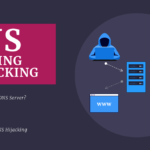Tired of the endless barrage of spam emails flooding your inbox? You’re not alone. According to recent statistics, over 45% of all emails sent globally are spam, with many containing malicious content designed to steal your data or infect your devices. While the impulse to retaliate is natural, knowing how to get spam email revenge legally and safely is crucial. This guide explores effective countermeasures that stay within legal boundaries while helping reduce spam and potentially expose scammers.

Is Seeking Spam Email Revenge a Good Idea?
Before diving into revenge tactics, let’s address the critical question: Should you even attempt to retaliate against spammers? The answer is nuanced and depends on several factors:
Important Considerations Before Taking Action
- Legal risks: Some revenge tactics could violate anti-harassment laws or computer fraud statutes
- Potential escalation: Angering sophisticated scammers might make you a target for increased attacks
- Time investment: Effective counter-measures often require significant time commitment
- Technical expertise: Some methods require technical knowledge to implement safely
- Privacy concerns: Engaging with scammers may expose more of your personal information
While the idea of getting back at those who flood your inbox with malicious emails or fake security alerts might feel satisfying, defensive strategies are generally more effective than offensive ones. That said, there are legitimate ways to fight back that can be both satisfying and helpful to the broader community.
5 Legal and Effective Spam Email Revenge Tactics
Here are proven strategies that allow you to fight back against spammers without crossing legal or ethical boundaries:
1. Strategic Ignorance: The Simplest Revenge
Sometimes the best revenge is denying scammers what they want most: your attention and engagement. By properly filtering and ignoring spam, you reduce their success rates and profitability.
- Set up advanced email filters that automatically identify and segregate suspicious messages
- Use “Mark as spam” features to help email providers improve their filtering algorithms
- Never click unsubscribe links in suspicious emails, as they often confirm your address is active
- Maintain separate email accounts for different purposes (personal, shopping, newsletters)
This passive approach might not feel like revenge, but it’s extremely effective at scale. When millions of users properly filter spam, the economics of spamming become less favorable for scammers.
2. Scambaiting: Wasting Scammers’ Time and Resources
Scambaiting involves deliberately engaging with scammers to waste their time and resources, preventing them from targeting genuine victims. This practice has grown into a sophisticated counter-scamming technique with dedicated communities.
Essential Scambaiting Safety Precautions
- Create a dedicated persona and email account with no connection to your real identity
- Use a virtual machine when interacting with potential scammers to isolate any malware
- Set up a VPN connection to mask your true IP address and location
- Never share genuine personal information even if the conversation seems harmless
- Use temporary phone numbers if voice communication becomes necessary
Effective Scambaiting Techniques
- Feign interest and ask endless questions to keep scammers occupied
- Request increasingly detailed information that forces them to invest more time
- Use fake documentation generators to create convincing but useless materials
- Create elaborate stories requiring complex explanation and follow-up
- Pretend to have technical difficulties that delay progress and frustrate scammers
Scambaiting can be satisfying when done correctly, but always remember to stay within legal boundaries. Never threaten, harass, or engage in illegal activities while scambaiting.
Scambaiting Success Story
In a famous case documented on the 419Eater forum, a scambaiter convinced a group of advance-fee fraudsters to hand-carve a wooden computer, complete with keyboard and monitor, as “proof” of their technical capabilities before receiving payment. The scammers spent weeks on this project, during which time they were unable to target legitimate victims.
3. Reporting to Authorities and Service Providers
One of the most impactful forms of revenge involves reporting spammers to entities that can take meaningful action against them. Systematic reporting helps build cases against persistent offenders and can lead to account terminations, domain seizures, or even legal action.
- Forward phishing emails to specific reporting addresses:
- Google/Gmail: [email protected]
- Microsoft: [email protected]
- US Government: [email protected]
- Anti-Phishing Working Group: [email protected]
- Report to domain registrars and hosting companies who may terminate services for abusive accounts
- Submit details to governmental agencies:
- USA: FTC at reportfraud.ftc.gov
- UK: Action Fraud at actionfraud.police.uk
- Canada: Canadian Anti-Fraud Centre
- Australia: ScamWatch
- Document everything with timestamps, headers, and complete message content
For maximum impact, include details from email headers that show originating IP addresses and mail servers. This technical information helps authorities trace and connect multiple spam campaigns to the same operators.
4. Using Anti-Spam Tools and Services
Several specialized tools have been developed specifically to counter spam and waste scammers’ resources automatically:
- Re:scam AI Chatbot: This service allows you to forward scam emails to an AI that engages scammers in endless, time-wasting conversations automatically
- Spam email trap services: These create fake email addresses that, when harvested by spammers, help identify and block spam sources
- SpamCop and similar reporting tools: These analyze email headers and automatically report offenders to relevant ISPs
- DMARC, SPF, and DKIM implementation: These email authentication protocols help prevent spoofing of your domains
These tools provide “set and forget” revenge that works continuously in the background while requiring minimal ongoing effort from you.
5. Joining Anti-Scam Communities
Collective action is often more powerful than individual efforts. By joining established anti-scam communities, you multiply your impact and gain access to specialized knowledge and resources:
- 419Eater: One of the oldest and largest scambaiting communities, focused primarily on advance-fee fraud
- Scamwarners: Community dedicated to warning about active scams and supporting victims
- Reddit communities: Subreddits like r/scambait and r/scams provide resources and community support
- Local consumer protection groups: Many regions have consumer advocacy organizations that work to combat scams
These communities often coordinate efforts, share intelligence about active scammers, and help authorities build stronger cases against persistent offenders.
Legal and Ethical Boundaries for Spam Revenge
While fighting back against spammers can be satisfying, it’s essential to understand where legitimate countermeasures end and potential legal problems begin:
Actions to Avoid
- Sending retaliatory spam: Responding with your own spam campaigns violates anti-spam laws in most countries
- DDoS attacks: Attempting to overwhelm scammers’ servers violates computer fraud laws
- Doxing: Publishing scammers’ personal information can violate privacy laws and lead to harassment charges
- Hacking attempts: Trying to breach scammers’ systems is illegal regardless of your intentions
- Threatening language: Making threats, even against known scammers, can constitute criminal harassment
The key principle to remember is that illegal activities don’t become legal just because they target criminals. Stick to legal methods that protect your own security while potentially helping others avoid falling victim.
When Scammers Already Have Your Information
If you’re seeking revenge because scammers already have your email address or other personal information, take these immediate protective steps:
- Change passwords for your email and any potentially compromised accounts
- Enable two-factor authentication wherever available
- Check your credit reports for unauthorized activity
- Place fraud alerts with credit bureaus if necessary
- Monitor accounts for suspicious login attempts or transactions
- Consider using a dedicated anti-malware solution like GridinSoft Anti-Malware to scan for and remove any malware that might have been installed
For more detailed guidance on what to do if scammers have your email address, our specialized guide provides comprehensive recovery and protection strategies.
Preventative Measures for Long-Term Protection
While revenge might feel satisfying in the moment, implementing strong preventative measures offers more sustainable protection:
- Use email aliasing or masked emails when signing up for services
- Regularly audit privacy settings on social media and online accounts
- Implement a password manager to maintain unique, strong passwords
- Be cautious with information sharing in online forums and social media
- Keep software updated to protect against known vulnerabilities
- Use comprehensive security software that includes anti-phishing protection
Remember that your time and attention are valuable resources. Often, the best revenge is living well—with a clean inbox and strong digital security that renders scammers’ efforts futile.
Frequently Asked Questions
Is it illegal to waste a scammer’s time?
No, scambaiting itself is not illegal. Deliberately engaging with scammers to waste their time falls within legal boundaries as long as you don’t engage in harassment, threats, or illegal activities yourself. However, legal standards vary by jurisdiction, so it’s important to stay within ethical boundaries. Focus on wasting their time with endless questions or feigned confusion rather than antagonistic behavior.
Can I get in trouble for replying to spam emails?
Simply replying to spam emails generally won’t lead to legal trouble, but it does confirm your email address is active, potentially leading to more spam. The greater risks are inadvertently downloading malware, sharing sensitive information, or clicking on phishing links. If you choose to reply for scambaiting purposes, use a dedicated email address unconnected to your real identity and employ proper security measures like virtual machines and VPNs.
What information can spammers gather from my email replies?
When you reply to spam emails, scammers can potentially collect: your IP address, email client information, device details, your location (from email headers), your writing style and language skills, any information shared in your signature, and metadata from any attachments you send. Additionally, your response patterns can reveal your schedule and availability. This is why using a dedicated email through a VPN is recommended for any intentional scammer engagement.
Does reporting spam actually make a difference?
Yes, reporting spam can make a significant difference, especially when done consistently and collectively. When you report spam to email providers, it improves their filtering algorithms, protecting all users. Reports to government agencies like the FTC can lead to investigations and legal action against major spam operations. Domain registrars and hosting providers may terminate services for spammers based on abuse reports. While individual reports might seem insignificant, the aggregate effect of widespread reporting creates substantial barriers for spammers.
What should I do if a scammer threatens me after I’ve tried to waste their time?
If a scammer makes threats after you’ve engaged in scambaiting, take these steps: 1) Stop all communication immediately, 2) Document everything, including all messages, emails, and call logs, 3) Report the threats to local law enforcement and relevant online platforms, 4) Review your privacy settings and secure your accounts with password changes and two-factor authentication, and 5) Consider using security software to scan for any malware that might have been installed. Most scammer threats are empty attempts to intimidate, but taking these precautions ensures your safety.
How to Respond to Scam Emails Safely
If you decide to engage with scammers, always follow these essential safety protocols:
- Never use your real information or personal accounts
- Set up technical safeguards like VPNs and virtual machines
- Have a clear exit strategy if the scammer becomes threatening
- Consider reporting the interaction to relevant authorities
- Remember that your safety is more important than getting revenge
Learn more about avoiding phishing scams and protecting your digital identity.






Ok
keeps gettin hacked…help me i know i vist lots of porn sites but how can i get them to stop bothering me plse help before my wife sees
Sean this is your wife, I’m very disappointed i had to find out this way.
think of our children
and the children in the drain.
omg
+919821144201